An Herbal Approach: The Respiratory System
The lungs form the core of our Respiratory System, intimately connected to our blood and heart. This is where oxygen is pumped from the lungs to all organs in our body, and the blood carries that oxygen. When our Respiratory System is not healthy we can really feel it. You might notice shortness of breath, a cough or even a respiratory infection! None of this is fun to experience and if you are looking for ways to build up the health of your lungs, keep reading!
In this post I explore how we may build a healthy Respiratory System and treat any aliments in a natural way… You may be thinking, ok so you mean exercising? And that may be part of it but you can also use folk remedies proven effective over the years. remedies like this are plant based medicine and are much more natural that over the counter cough medicine! Herbs that act on the Respiratory System do so by clearing chest congestion or easing nasal and sinus inflammation. They may loosen tightened airways to allow for ease of breath or treat respiratory illness cause by microbes. The possibilities are truly endless!
How the Respiratory System Works
From the atmosphere into our bodies
This whole process begins with the nose and mouth. These are the airways carrying breath to our lungs and the blood vessels that transport the compounds within. Pumped by our diaphragm and the muscles that support our respiratory system. This whole pathway consists of many different parts. The sinuses are one of the first to begin altering and adjusting the air we intake. It is able to regulate the temperature and humidity of the air we breathe. This is essential especially in colder climates where the cooling of our core temperature could mean death.
Down our airways and into the lungs
Next the air moves through the throat, trachea and bronchial tubes into the lungs. This is where the oxygen is extracted and transported through the blood! Hemoglobin in red blood cells carries oxygen to all of our organs. When hemoglobin takes up the oxygen the iron within it turns the distinct red we associate with blood. The transfer of oxygen and then carbon dioxide takes place within alveoli, tiny air sacs in the lungs. The alveoli are connected to branches of the bronchial tube called bronchioles. These are all contained within our lung lobes which in turn are surrounded by a thin fluid sac called pleura. These are all the main components of our respiratory system, but there are others too. Like the cilia, small hairs that line our airways, filtering dust and other particles with the aid of mucus too.
Connected to our surrounding with every breath
Because of its function this system is one of the few in direct contact with the environment. And therefore microbes too, they play an interesting function within it. In every breath we take countless microbes are inhaled with it. When they are taken into the body it is up to our exosomes to fight them off. These exosomes are released from cells that line our nasal passageways. Because of the openness of this system it is easily susceptible to imbalance.
Imbalance in Respiration
Allergies and Inflammation
When our Respiratory system is out of balance we may experience some unpleasant symptoms. Take allergies for instance, these are caused by inflammation of the airways including the sinuses. This is due to the inhalation of particulates and proteins such as dust, mold and pollen. Herbs that reduce inflammation or even bee pollen taken in very small doses may be used to help the body manage these foreign particulates!
Asthma
Another disorder caused by excess inflammation is asthma. A long term disease of the lungs, asthma restricts your airways making it difficult to breathe. Inflammation is the main cause of this narrowing but it may also be caused by large amounts of mucus or spasms of the muscles surrounding the airways. Decongestants and expectorants can help keep airways clear while anticatarrhal agents can relieve mucosal inflammation.
Respiratory Infection
Due to the contact of the outside within our respiratory tract it is unavoidably prone to infection. However keeping our sinuses in good health and promoting a balanced immune system can help our body regulate these microbial intruders.
Labored Breathing
The function of our respiratory system is quite obvious and as you read this every breath you take makes it more so. But what happens when our body struggles with the very function? A condition known as dyspnea or labored breathing is just that. This may be a symptom of another disorder such as asthma but treating it may help ease the whole overall issue. Herbs that ease dyspnea may do so by relieving tightness of the chest making it easier to breathe. And if the dyspnea is anxiety related a nervine tonic may aid in easing it.
Overall respiratory health is vital and the easiest way to achieve it is through consistent exercise. Isn’t that surprising… or not, breathing more makes it easier to breathe more!
Modes of Administration
The dried herb may be used to create an infusion or decoction. As well, tinctures, syrups, and tonics are great for internal use. Alternatively because the lungs are commonly being treated, a steam bath or a smoke blend may also be called for. Look into each herb to be used to determine the best mode of administration. Each plant calls to be treated in a specific way. Take mullein for example. Highly praised for its use in blends for the lungs, it works best in a cold, slow infusion rather than a smoke blend. You see, the bioactive compounds responsible for its actions are destroyed by combustion, rather they prefer to slowly diffuse into cool water, keeping them stable and intact, ready for delivery to the body!
Herbal Therapeutics for the Respiratory System
Anticatarrhal
These herbs relieve mucosal inflammation. They are used to help remove excess mucus from the sinuses and to regulate its production by treating inflammation. Mucus is an essential component to our bodies, but when our sinuses become inflamed the production of this substance becomes excessive.
Eyebright, although historically used for treatments for the eyes, is quite useful in treating nasal inflammation and for clearing out excess mucus. Applying an ointment directly to the nasal passageways may provide instant relief.
Pearly Everlasting is an expectorant and an astringent that also acts as a great anticatarrhal agent, combining with mullein yields a powerful tonic.
Anti-inflammatory
Herbs that have this action work to make breathing easier by opening our airways. Those who suffer from asthma may benefit if their condition is constricting the airways.
Pippali is a pepper prominent in the Aruvedic practices. It has shown significant activity against inflammation, most effective against acute and subacute inflammation.
Bronchial asthma is a chronic inflammatory disease that curcumin, the active constituent of turmeric has shown promising relief for.
Antispastic
That which reduces muscle spasms, in the respiratory system muscle spams may cause coughing or restricting of the airways. Herbs that act with this action do so by calming the muscles, easing tightness, and opening the airways.
Cramp Bark can be used to treat bronchial spasms and the subsequent restricted airways.
Mullein, this astringent expectorant can also stop hard, dry coughs caused by bronchial spasms.
Wild cherry bark is a great treatment for asthma due to its activity against excess mucus and muscle spasms.
Antitussive
Herbs with this action relieve and treat coughs. When the throat is irritated coughing may be a symptom. As well we just discussed how muscle spasms may also cause coughs so some of these herbs may also soothe bronchial muscle spasms. There are many different kinds of coughs, dry and wet, sometimes painful and with a lot of irritation. Finding the perfect remedy involves narrowing down the type of cough.
A moist/wet cough expelling much mucus can be treated with thyme or ginger. Thyme is a natural expectorant and will work to clear excess mucus. Ginger also acts to remove excess phlegm and soothes an irritated throat.
Dry coughs may be treated with licorice, mallow, or osha.
Aromatic
These herbs are, as the name indicates, aromatic! Because you typically use these herbs for their essential oil, steams with them are especially useful. Steam baths are a wonderful way of administration, the warmth opens the airways and the steam loosens any excess mucus too.
Eucalyptus is a great plant to use for opening up the lungs. Hanging a bushel in the shower is a great steam treatment!
Juniper, oregano, and cedar are also great to add to a steam! They really open the airways.
Bronchodilator
These herbs work to dilate or open the airways. Sometimes bronchial constriction is eased by an opposing agent.
Lobelia is good to ease the shortness of breath or labored breathing associated with a tightening of the airways. It is also a treatment for asthma attacks and is best made with the fresh herb.
Respiratory tonic
Meant to enhance the overall wellness of the system. Tonics are usually composed of a combination of different herbs, all coming to the aid of the same system.
Try an oxymel of cordyceps, astragalus root, and elderberries for an immune boosting lung tonic. Add your herbs to apple cider vinegar and macerate for a couple of weeks, top off with honey to taste and you have a powerful herbal remedy.
Demulcent
These herbs soothe mucus membranes and relieve inflammation. These may do so by helping to create a protective film over the mucus membranes. Some have a gel-like consistency mimicking our own mucus. Use mucoprotective agents to ease sore throats and relieve irritation of the mouth and throats.
Licorice root makes for an excellent decoction for a sore throat. It should help with canker sores if swirled a bit.
Marshmallow is another root that acts as a demulcent. It eases dry coughs and works best in a cold infusion, steep the root for several hours in water before administration.
Decongestant
That which breaks up excess mucus in the respiratory tract, especially in the sinuses. Herbs that act this way pair well with expectorants, which help to expel the mucus that has loosened.
Basil is a wonderful decongestant that also holds antimicrobial and antiseptic properties.
Expectorant
These promote the expulsion of mucus from the respiratory tract
Balm of Gilead is a resin from Commiphora opobalsamum, an expectorant stimulating the movement of mucus. Strip a small piece of bark off this balsam tree to reveal the sap within, drying this yields a resin that may be chewed directly. It will ease throat irritation and clear your system out.
Mucolytic
Aiding to disperse mucus these herbs are excellent for thinning out mucus to make it easier to pass. They are quite useful for those who suffer from chronic or long-term coughs.
Horehound is a plant famous for its use in cough remedies, but it is also quite helpful in clearing out excess mucus.










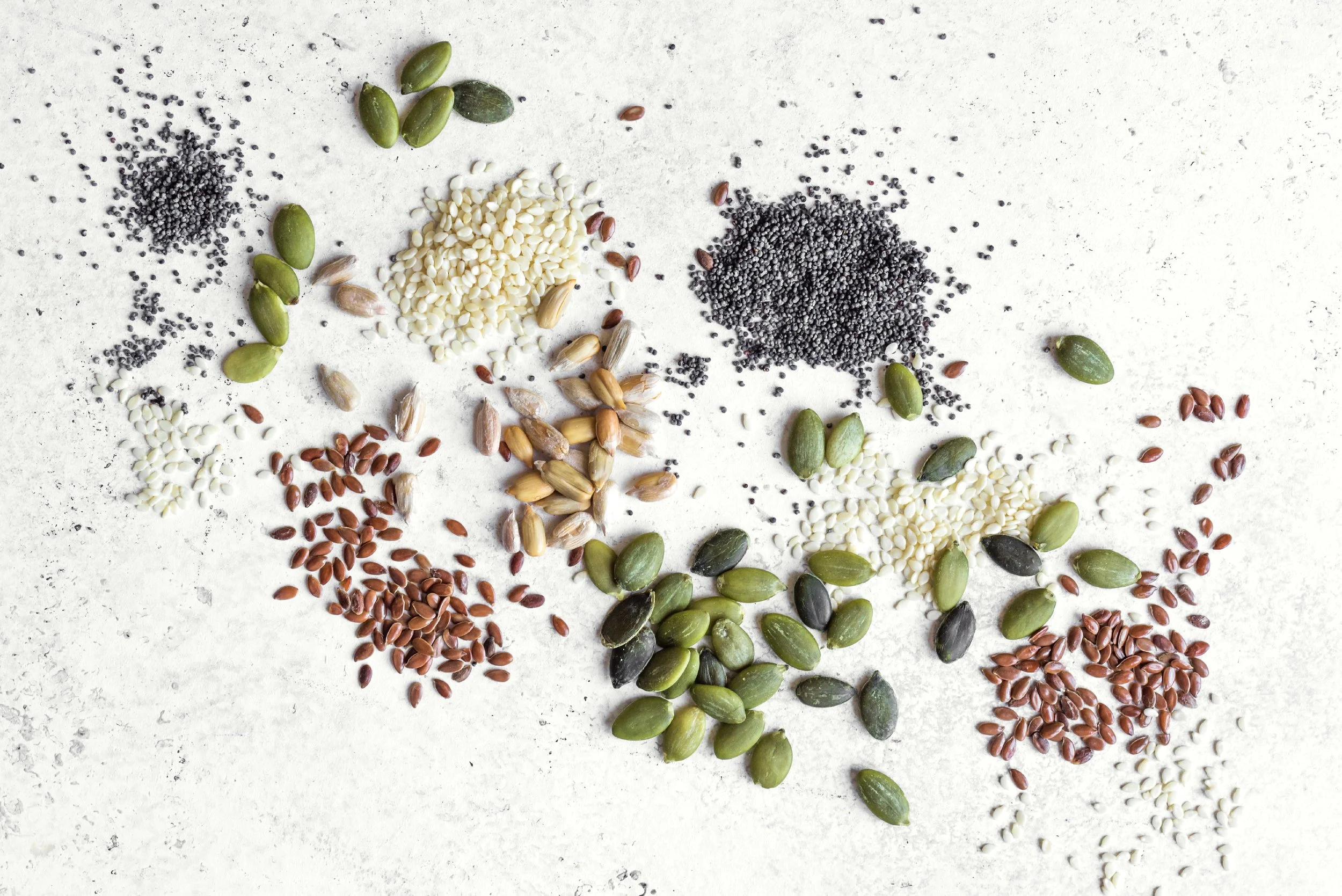
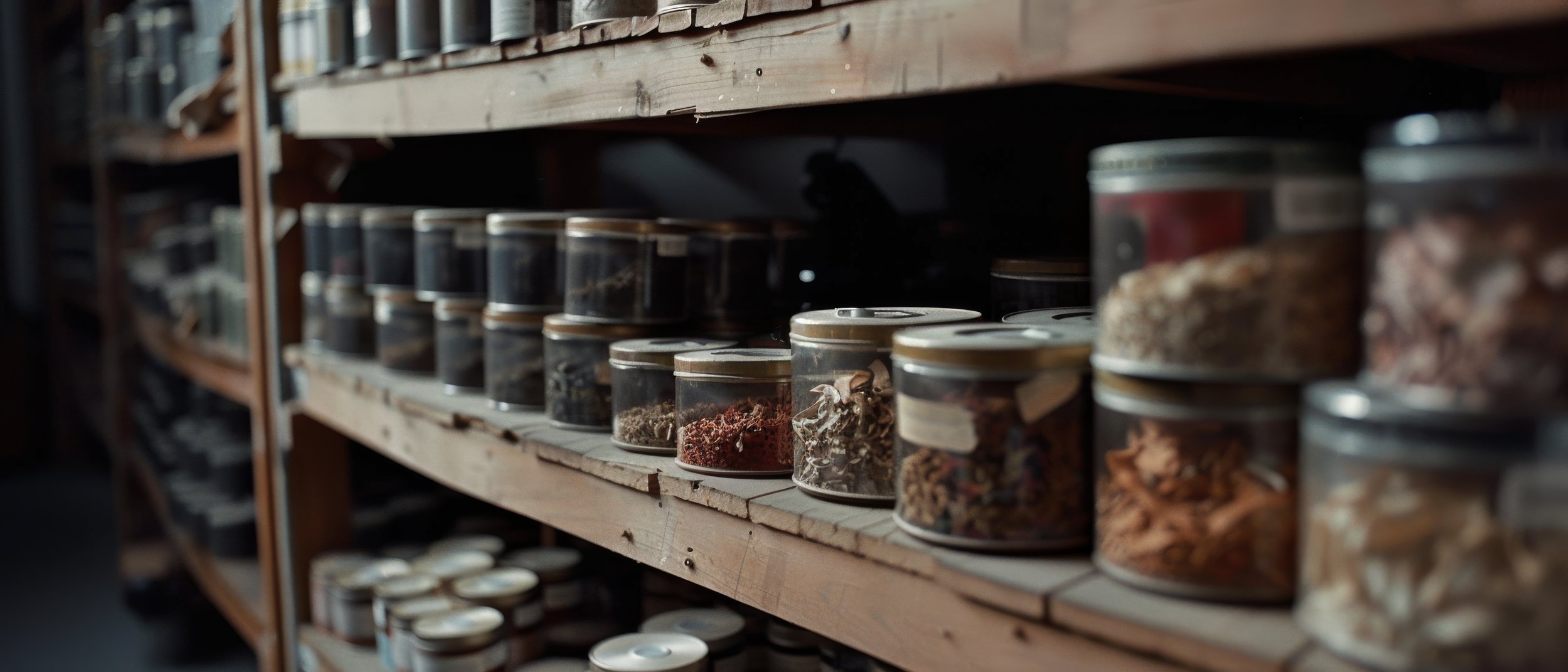
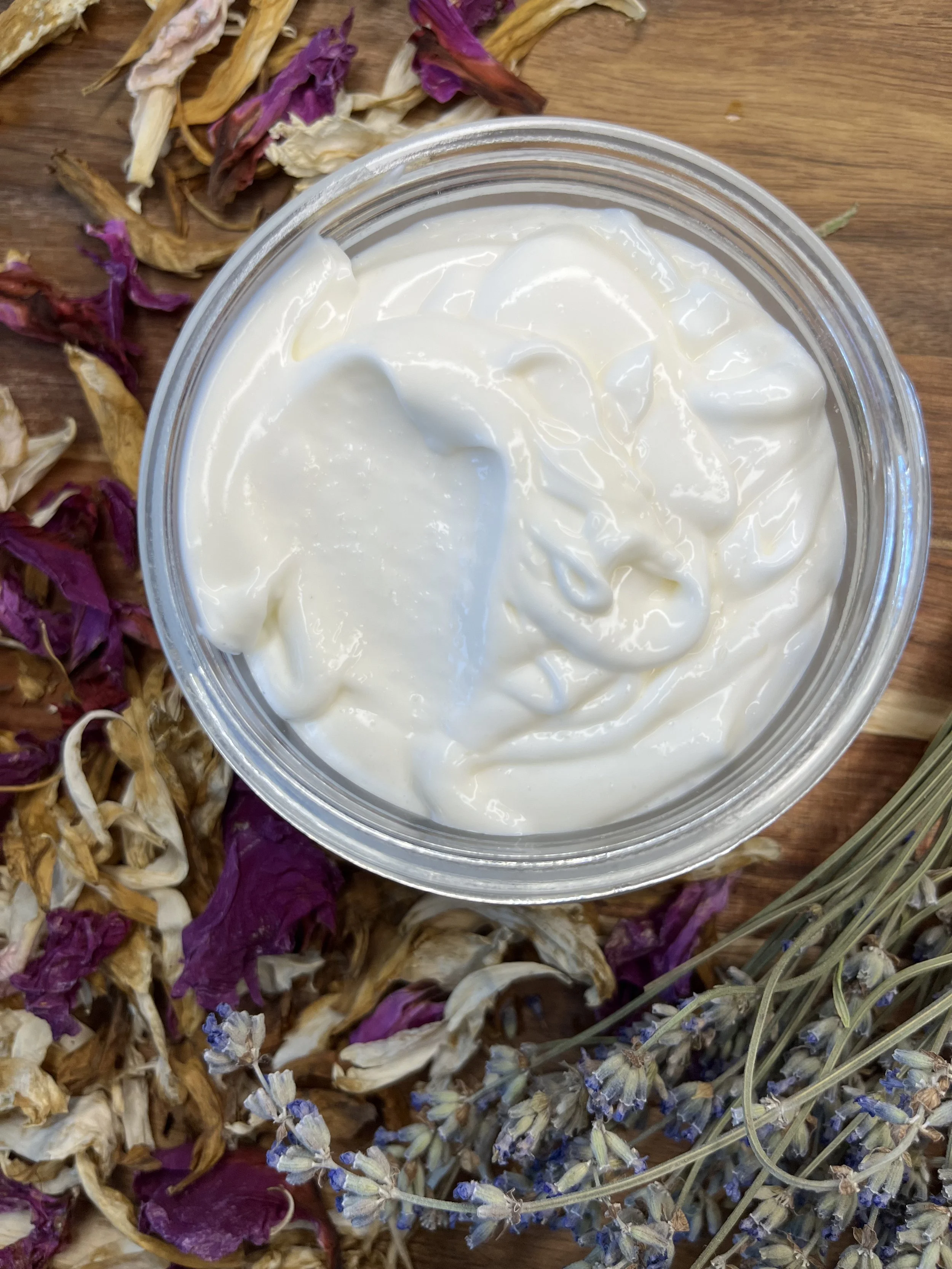
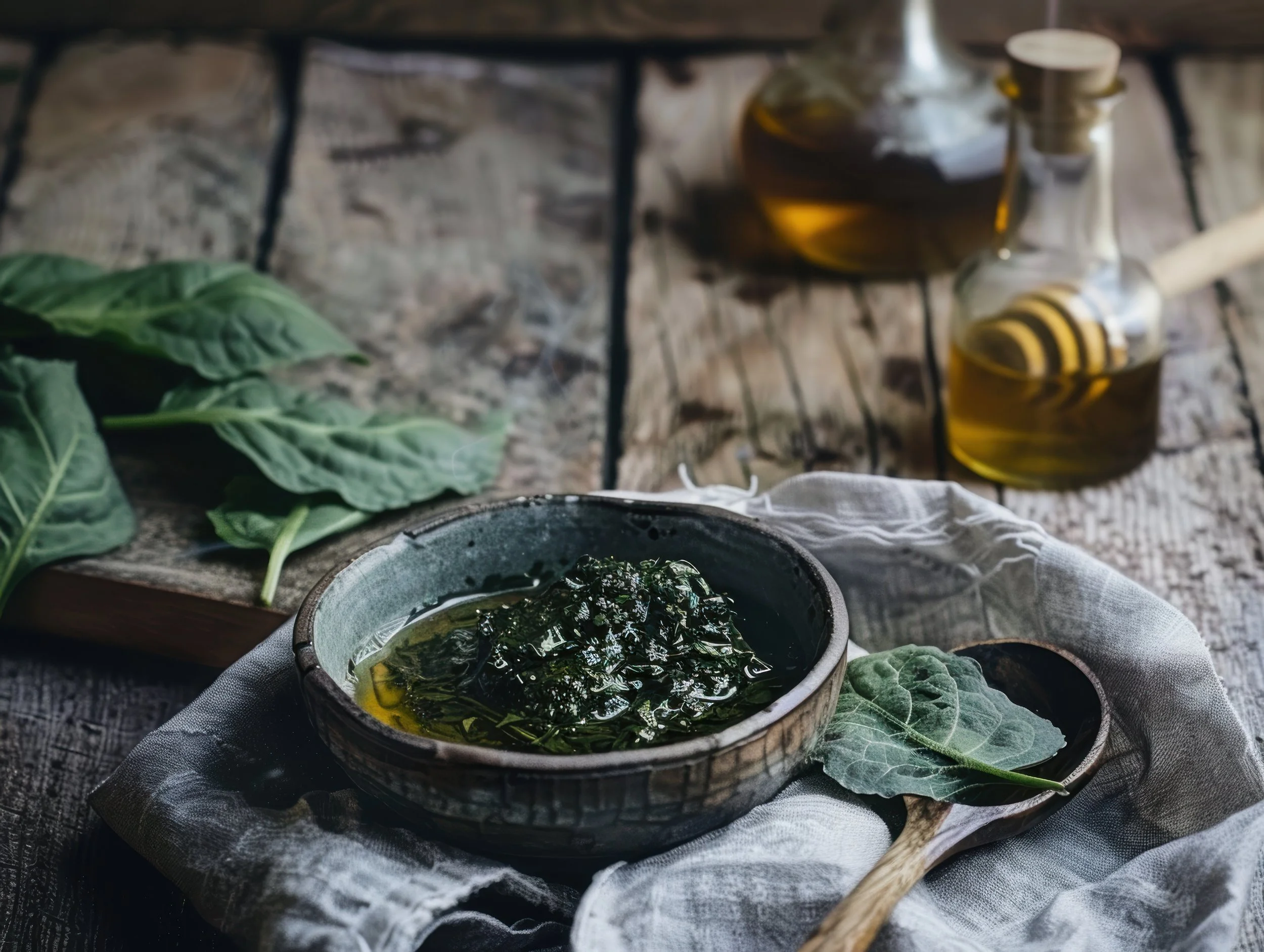
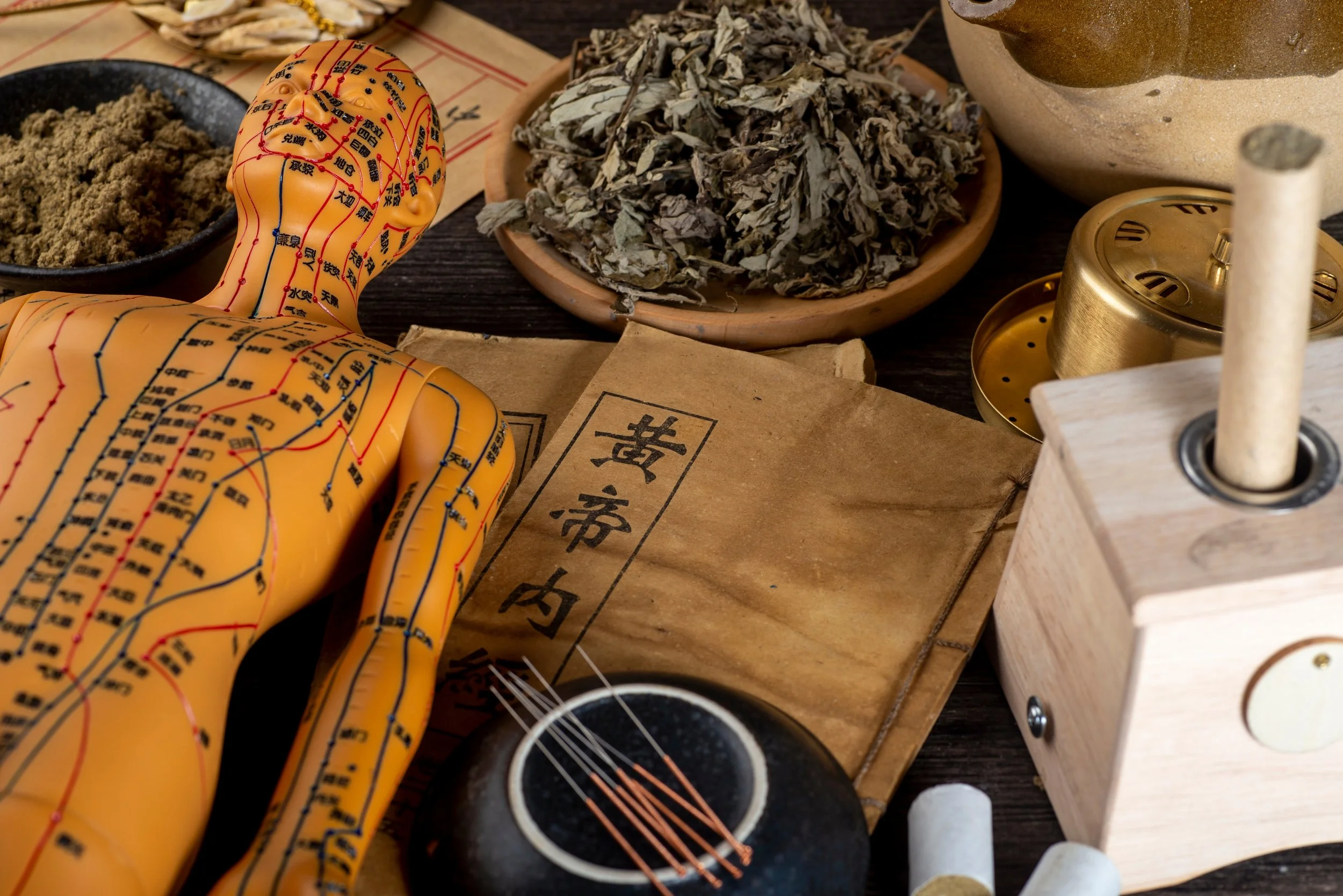





Hello and welcome! I'm Eve, a Chemist turned Herbalist, sharing the wonders of plant medicine and botanical skincare. Join me on this journey to Learn, Create, and Align your Divine!